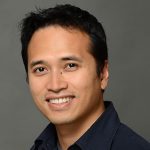SomnusNooze
 What is delayed sleep phase syndrome (DSPS) and how is it diagnosed? Should it be ruled out before a diagnosis of idiopathic hypersomnia (IH) is made? We are very honored to have Thanh Dang-Vu, MD, PhD, a neurologist at Concordia University in Montreal, and a distinguished member of our Medical Advisory Board, answer these questions.
What is delayed sleep phase syndrome (DSPS) and how is it diagnosed? Should it be ruled out before a diagnosis of idiopathic hypersomnia (IH) is made? We are very honored to have Thanh Dang-Vu, MD, PhD, a neurologist at Concordia University in Montreal, and a distinguished member of our Medical Advisory Board, answer these questions.
QUESTION:
What is delayed sleep phase syndrome (DSPS) and how is it diagnosed? Should it be ruled out before a diagnosis of idiopathic hypersomnia (IH) is made?
RESPONSE:
The diagnosis of delayed sleep phase syndrome, also called delayed sleep-wake phase disorder (DSWPD), is based on a history of a consistent (for 3 months or more) delay in the timing of the sleep episode at night, with the complaint of an inability to fall asleep or wake up at conventional times. The person will typically fall asleep very late in the night (around 1 to 6 AM) and, if there is no social or professional obligation to wake up at a certain time, will only wake up in the late morning or afternoon. The person with DSWPD will often complain of daytime sleepiness because of the need to wake up well before the time of spontaneous awakening, resulting in an insufficient amount of sleep. A self-reported sleep diary (1 to 2 weeks) will be important to show the consistent delay in sleep timing. This delay can be objectively demonstrated by an actigraphic monitoring, if available, for the same period (actigraphy is the recording of movements using a special wrist-worn watch, which can be used to estimate sleep-wake cycles over several days). The demonstration of the delay can also be objectively confirmed by the assessment of melatonin levels in the saliva or urine under specific conditions of collection, but these measures are not commonly available in routine clinical practice.
It is indeed important to rule out a DSWPD before confirming a diagnosis of IH. Usually the history will be very different as people with IH do not typically demonstrate delayed bedtimes, and will not wake up refreshed even when given the opportunity to sleep as much as they want, in contrast to DSWPD. A sleep diary (with actigraphy, if available) can be useful to differentiate the 2 conditions.
EDITOR’S NOTE: Dr. Dang-Vu will be speaking at our HF Education Meeting in Chicago on October 19. Register now to attend this event. And if you enjoy this Ask the Doctor series, please consider donating to the Hypersomnia Foundation now. Finally, if you have IH or a related sleep disorder, please join our registry at CoRDS and be sure to update your responses at least yearly.
Disclaimer for Ask The Doctor: The medical information provided is meant for educational purposes only and is not a substitute for professional medical care and advice. Each person is different, and questions about a personal health condition should be discussed with your own healthcare professional.
